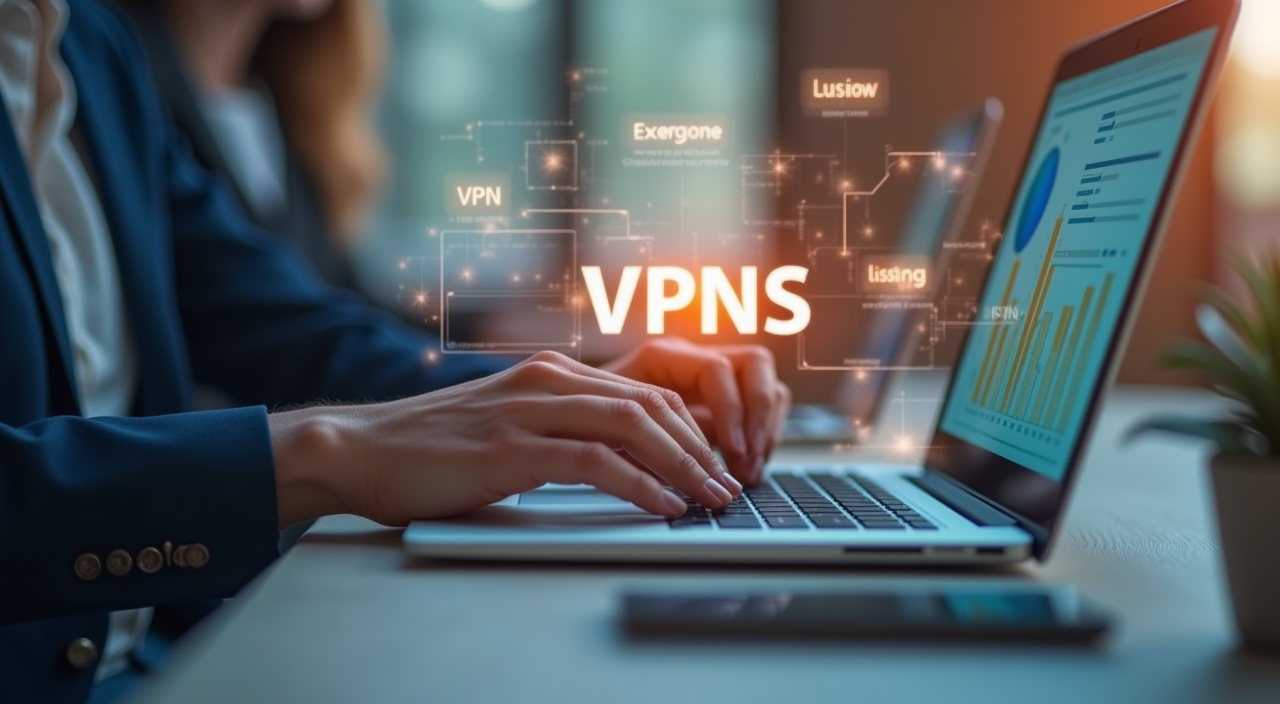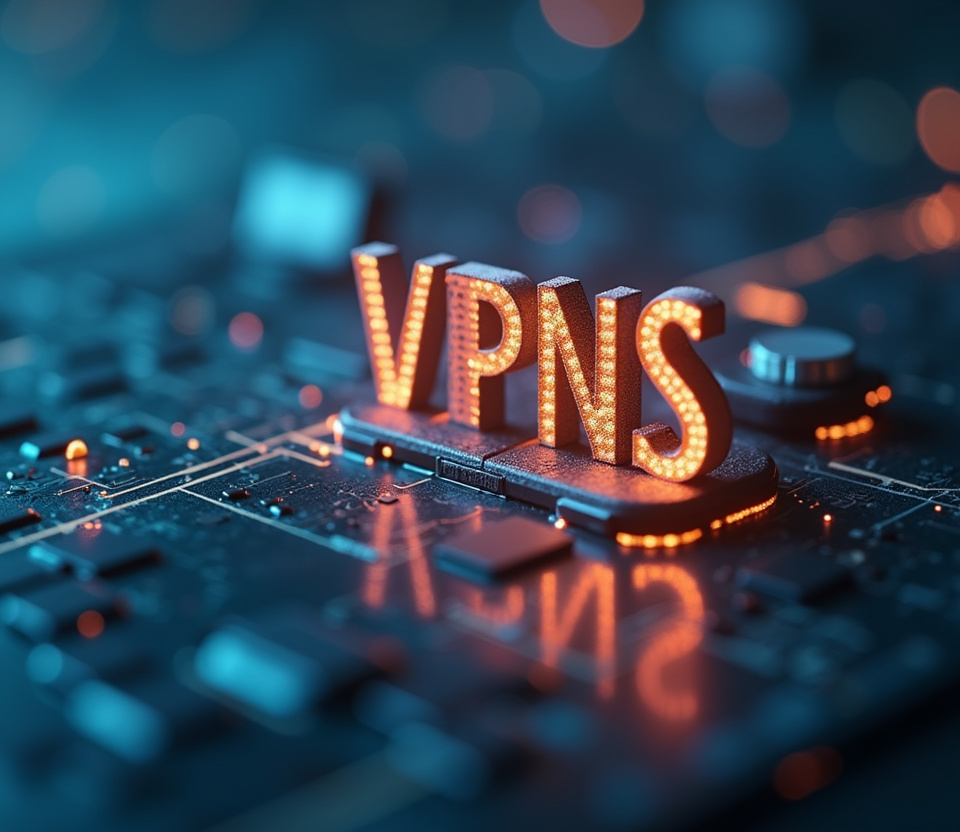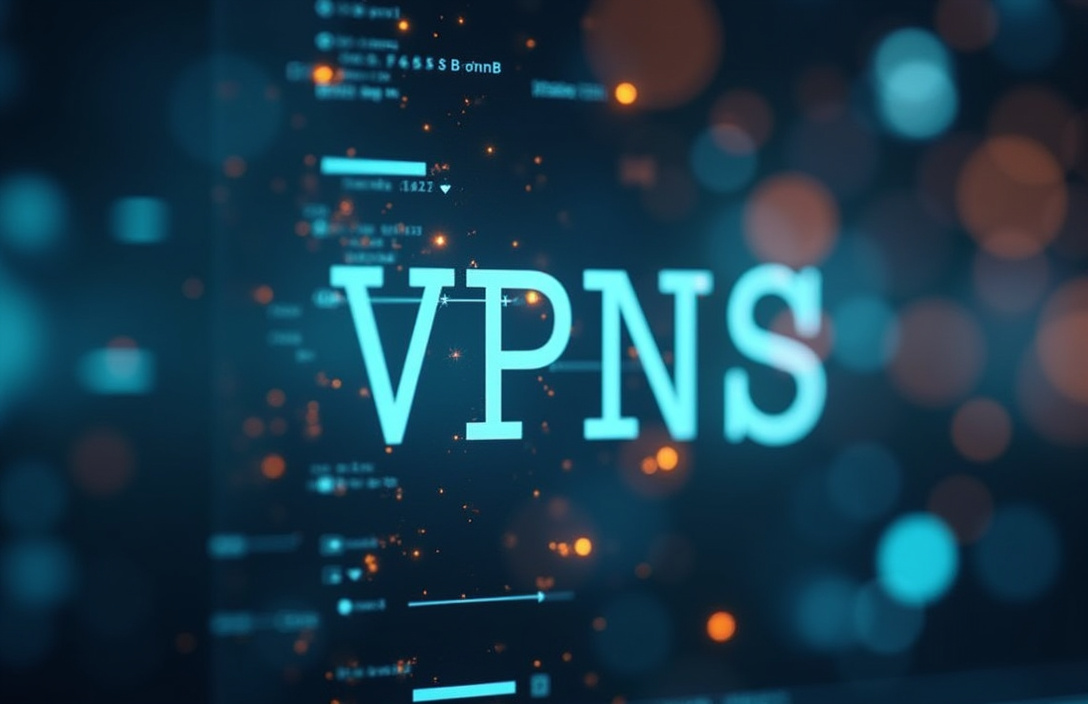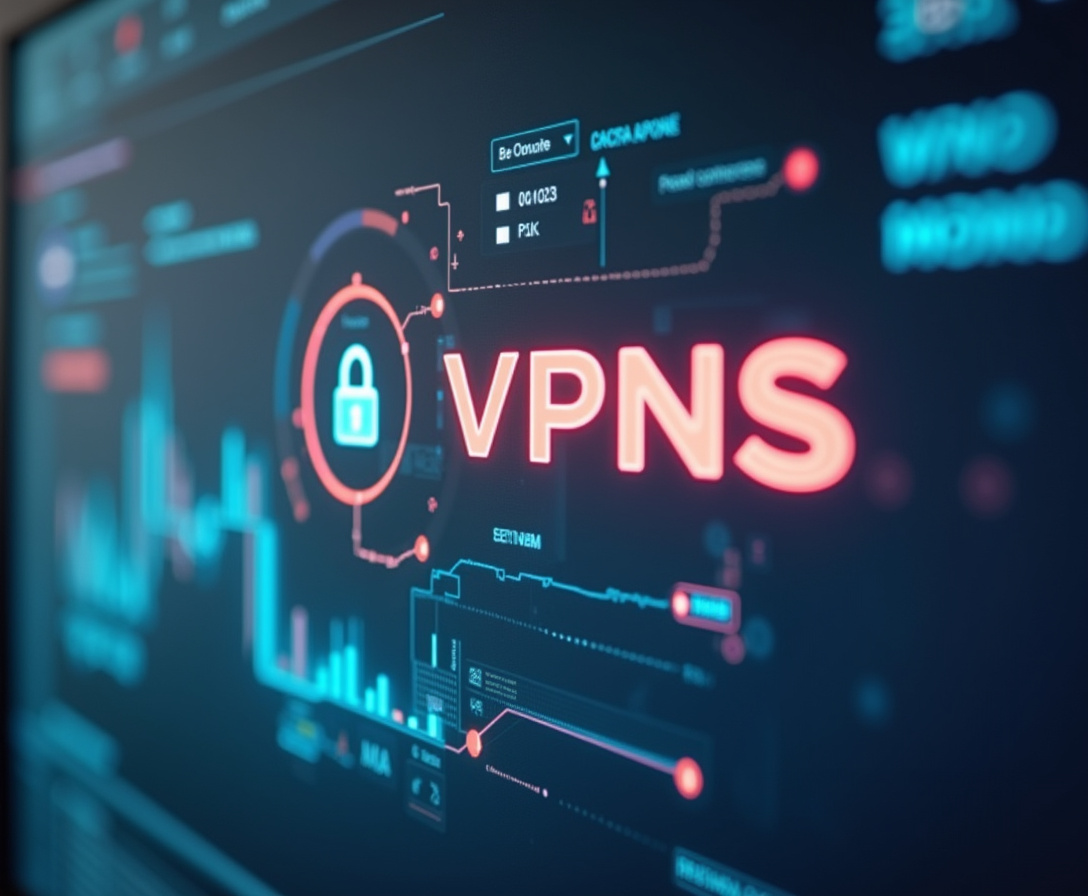VPNs for Virtual Business Meetings: Ensuring Secure Collaboration

Table of Contents
In today's digitally driven landscape, virtual business meetings have emerged as a cornerstone of modern collaboration, transcending geographical boundaries and enabling seamless interaction among teams, partners, and clients worldwide. These virtual gatherings have revolutionized the way organizations operate, fostering real-time communication, facilitating efficient decision-making, and driving innovation across diverse locations. However, the increasing reliance on virtual platforms also introduces significant security vulnerabilities, posing a serious threat to sensitive business information and compromising the integrity of confidential discussions.
This article delves into the critical importance of securing virtual business meetings through the strategic implementation of Virtual Private Networks (VPNs), exploring how these powerful tools can safeguard data privacy, enhance meeting security, and ensure seamless collaboration in the digital realm. Understanding the inherent security risks associated with virtual meetings is paramount for organizations seeking to protect their valuable assets and maintain a competitive edge. The internet, while a powerful enabler of communication, is also a breeding ground for cyber threats, exposing virtual meetings to a range of potential attacks, including eavesdropping, data breaches, and unauthorized access.
Without adequate security measures, sensitive conversations, confidential documents, and proprietary information shared during virtual meetings can be intercepted by malicious actors, leading to significant financial losses, reputational damage, and legal liabilities. Consider the scenario of a virtual board meeting where sensitive financial data, strategic plans, and potential merger discussions are being shared among board members located across different continents. Without a secure connection, this information could be intercepted by cybercriminals, giving them access to valuable insights that could be used for insider trading, corporate espionage, or other malicious purposes.
Similarly, a virtual meeting between a company and its legal counsel discussing a sensitive litigation matter could be compromised, exposing confidential legal strategies and potentially jeopardizing the company's defense. The vulnerabilities of virtual meetings extend beyond external threats, also encompassing internal security risks. Unauthorized employees, disgruntled individuals, or those with malicious intent may attempt to gain access to confidential meetings, eavesdrop on sensitive discussions, or steal proprietary data.
This underscores the importance of implementing robust access controls and authentication mechanisms to ensure that only authorized personnel can participate in virtual meetings and access confidential information. Furthermore, the use of unsecured Wi-Fi networks in public places significantly amplifies the risk of data breaches during virtual meetings. When employees connect to public Wi-Fi networks in coffee shops, airports, or hotels, their internet traffic is often unencrypted, making it vulnerable to interception by hackers.
Cybercriminals can easily set up fake Wi-Fi hotspots or intercept traffic on legitimate networks, gaining access to sensitive information transmitted during virtual meetings. To mitigate these risks and ensure the security of virtual business meetings, organizations must adopt a comprehensive approach that combines technical safeguards, policy enforcement, and employee training. A business VPN emerges as a crucial component of this strategy, providing a foundational layer of security by encrypting all internet traffic, creating a secure tunnel that protects data from interception and unauthorized access.
By strategically deploying a VPN for teams, organizations can create a secure and productive online environment that fosters trust, collaboration, and innovation, enabling their teams to connect, communicate, and collaborate effectively without compromising sensitive information. The subsequent sections of this article will delve deeper into the workings of VPNs, exploring their benefits for securing virtual business meetings, and providing practical guidance on implementing a VPN strategy that aligns with organizational needs and security requirements.
Meeting security transcends mere data encryption; it encompasses a holistic approach to safeguarding the confidentiality, integrity, and availability of all communications and information exchanged during virtual gatherings. The potential consequences of a security breach during a virtual meeting can be far-reaching, impacting not only the organization's financial stability and reputation but also its competitive advantage and long-term viability. Imagine a scenario where a competitor gains unauthorized access to a virtual product development meeting, gaining insight into upcoming product features, pricing strategies, and marketing plans.
This stolen information could allow the competitor to launch a competing product with similar features at a lower price, effectively undermining the organization's market position and eroding its profitability. Data privacy regulations, such as the General Data Protection Regulation (GDPR) and the California Consumer Privacy Act (CCPA), further underscore the importance of meeting security. These regulations mandate that organizations protect the personal data of their employees, customers, and partners, including any information shared during virtual meetings.
Failure to comply with these regulations can result in hefty fines, legal liabilities, and reputational damage. A robust approach to meeting security should include several key elements: strong authentication mechanisms, access controls, data encryption, and regular security audits. Strong authentication mechanisms, such as multi-factor authentication (MFA), ensure that only authorized individuals can access virtual meetings.
MFA requires users to provide multiple forms of identification, such as a password and a verification code sent to their mobile device, making it significantly more difficult for unauthorized individuals to gain access. Access controls restrict access to virtual meetings based on user roles and permissions, ensuring that only individuals who need access to specific information can view it. For example, financial data should only be accessible to employees in the finance department, while sensitive legal documents should only be accessible to legal counsel.
Data encryption protects the confidentiality of communications and information exchanged during virtual meetings. End-to-end encryption ensures that data is encrypted on the sender's device and decrypted only on the recipient's device, preventing unauthorized access during transmission. Regular security audits assess the effectiveness of security measures and identify potential vulnerabilities.
These audits should be conducted by independent security experts who can provide objective feedback and recommendations for improvement. Collaboration protection goes beyond securing the meeting itself; it also involves protecting the tools and platforms used for virtual collaboration. Many virtual meeting platforms offer built-in security features, such as encryption, access controls, and recording capabilities.
Organizations should carefully evaluate these features and ensure that they are properly configured to meet their security requirements. Furthermore, organizations should implement policies and procedures for the use of virtual meeting platforms, including guidelines for data sharing, access control, and incident response. These policies should be communicated to all employees and enforced consistently to ensure that everyone understands their responsibilities for maintaining meeting security.
Employee training plays a crucial role in fostering a security-conscious culture. Employees should be trained on how to identify and avoid phishing scams, recognize suspicious activity, and protect their devices from malware. They should also be educated on the importance of using strong passwords, enabling multi-factor authentication, and reporting any security incidents immediately.
By empowering employees with the knowledge and skills they need to protect sensitive information, organizations can significantly reduce the risk of security breaches and data leaks. Data privacy is not merely a legal requirement; it is a fundamental ethical obligation. Organizations have a responsibility to protect the personal information of their employees, customers, and partners, ensuring that this information is handled responsibly and in accordance with applicable privacy laws and regulations.
A business VPN serves as a critical cornerstone in fortifying the security posture of virtual teams, particularly in today's increasingly distributed and remote work environments. It provides a robust and encrypted conduit for data transmission, effectively shielding sensitive information from prying eyes and unauthorized access, a quintessential requirement for maintaining confidentiality and trust in virtual business meetings. The essence of a VPN lies in its ability to create a secure, encrypted tunnel between a user's device and a remote server, effectively masking the user's IP address and encrypting all internet traffic flowing through that tunnel.
This encryption process transforms readable data into an unreadable format, rendering it incomprehensible to anyone who might intercept it along the way, be it a hacker lurking on a public Wi-Fi network or a malicious actor attempting to eavesdrop on a corporate communication. Consider a scenario where a team of engineers, scattered across different geographical locations, are collaborating on a highly confidential product design. Without a VPN, the data transmitted during their virtual meetings, including CAD files, technical specifications, and design schematics, could be vulnerable to interception.
However when a business VPN is implemented, this sensitive data is securely encrypted, preventing competitors or malicious actors from gaining access to the organization’s intellectual property. For teams operating in regions with restrictive internet censorship or surveillance, a VPN offers an invaluable layer of privacy and anonymity. By connecting to a VPN server in a different location, team members can circumvent censorship firewalls and access content that would otherwise be inaccessible, facilitating seamless communication and collaboration regardless of geographical limitations.
Additionally, a VPN can mask the user's IP address, making it more difficult for government agencies or other entities to track their online activity, further enhancing their privacy. The benefits of a VPN for teams extend beyond security and privacy, also encompassing enhanced access to internal resources and improved network performance. Remote workers often need access to internal file servers, databases, and applications to perform their duties effectively.
A VPN provides secure access to these resources, ensuring that only authorized personnel can access sensitive information. Furthermore, a VPN can improve network performance by routing traffic through optimized pathways, reducing latency and improving download and upload speeds. Selecting an appropriate VPN for your team involves considering several key factors, including the level of encryption offered, the number of server locations available, the logging policy, and the ease of use.
Strong encryption protocols, such as AES-256, provide the highest level of security, ensuring that data remains protected even in the event of a sophisticated cyberattack. A wide range of server locations allows team members to connect to servers in geographically diverse regions, circumventing censorship and optimizing network performance. A strict no-logs policy ensures that the VPN provider does not track or store any user activity, further enhancing privacy and security.
Ultimately, the chosen VPN solution should be user-friendly and seamlessly integrated into the team's workflow, minimizing disruption and maximizing productivity. The implementation of a VPN for teams should be coupled with other security best practices, such as strong passwords, multi-factor authentication, and regular software updates. These measures work in tandem to create a robust and multi-layered defense against cyber threats, safeguarding sensitive information and ensuring secure collaboration in the digital realm.
Furthermore, organizations should establish clear policies and procedures for VPN usage, outlining acceptable use guidelines, data security protocols, and incident response procedures. These policies should be consistently communicated to all team members and enforced to ensure compliance.
Data privacy is no longer merely a legal or compliance consideration; it's a fundamental ethical imperative and a critical factor in building and maintaining trust with employees, customers, and partners. In the context of virtual business meetings, data privacy encompasses the responsible handling and protection of all personal information shared or processed during these interactions, ranging from names and email addresses to sensitive financial data and confidential business strategies. Organizations must recognize that individuals have a right to control their personal data and expect that it will be treated with respect and in accordance with applicable privacy laws and regulations, such as GDPR, CCPA, and other evolving privacy frameworks.
A robust data privacy strategy for virtual business meetings necessitates a multifaceted approach, integrating technological safeguards, policy frameworks, and employee awareness programs. VPNs play a pivotal role in this strategy by providing a secure and encrypted channel for data transmission, preventing unauthorized access to personal information and mitigating the risk of data breaches. However, a VPN is merely one piece of the puzzle, and organizations must implement additional measures to ensure comprehensive data privacy protection.
Data minimization principles should be applied, ensuring that only the personal data that is strictly necessary for the purpose of the meeting is collected and processed. Avoid collecting sensitive personal information, such as social security numbers or health records, unless absolutely essential and with explicit consent from the individuals involved. Anonymization and pseudonymization techniques can be employed to further protect personal data by removing or masking identifying information.
Access controls should be rigorously enforced, restricting access to personal data only to authorized personnel who need to know the information for legitimate business purposes. Implement role-based access controls and regularly review and update user permissions to ensure that access is appropriately limited. Data retention policies should be established to govern the storage and deletion of personal data, specifying how long personal data will be retained and when it will be securely deleted or anonymized.
Comply with applicable data retention requirements and avoid retaining personal data longer than necessary. Transparency is essential for building trust with individuals and demonstrating a commitment to data privacy. Provide clear and concise privacy notices that explain how personal data is collected, used, and protected during virtual business meetings.
Inform participants about their rights regarding their personal data, such as the right to access, rectify, and erase their data. Regularly review and update privacy notices to reflect changes in data processing practices or applicable privacy laws. Employee training is crucial for fostering a privacy-conscious culture and ensuring that all employees understand their responsibilities for protecting personal data.
Provide regular training on data privacy principles, applicable privacy laws, and organizational data privacy policies and procedures. Emphasize the importance of protecting personal data and the potential consequences of data breaches. Conduct regular security audits and assessments to identify and address potential vulnerabilities in data privacy practices.
Implement a process for reporting and responding to data breaches promptly and effectively, complying with applicable data breach notification requirements. Ensure that data processing agreements are in place with all third-party service providers who process personal data on behalf of the organization, ensuring that they comply with applicable data privacy laws and regulations. These agreements should specify the security and privacy measures that the service provider is required to implement to protect personal data.
In conclusion, securing virtual business meetings is no longer an option but a fundamental necessity for organizations operating in today's interconnected and increasingly vulnerable digital landscape. The convergence of remote work, global collaboration, and sophisticated cyber threats has elevated the importance of implementing robust security measures to protect sensitive business information, maintain data privacy, and ensure seamless and trustworthy virtual interactions. A business VPN stands as a crucial element in this security arsenal, providing an encrypted tunnel for secure communication and safeguarding data from interception and unauthorized access.
By implementing a VPN for teams, organizations can create a secure and productive online environment that fosters trust, collaboration, and innovation, enabling their teams to connect, communicate, and collaborate effectively without compromising sensitive information. However, a VPN is not a silver bullet; it must be integrated into a comprehensive security strategy that encompasses technological safeguards, policy frameworks, and employee awareness programs. Strong authentication mechanisms, access controls, data encryption, and regular security audits are essential components of a robust meeting security strategy.
Data privacy principles should be applied rigorously, ensuring that only the personal data that is strictly necessary is collected and processed, and that individuals are informed about how their data is being used. Employee training is paramount for fostering a security-conscious culture and ensuring that all employees understand their responsibilities for protecting sensitive information and upholding data privacy. Organizations must also stay abreast of the evolving cyber threat landscape and adapt their security measures accordingly.
New threats emerge constantly, and organizations must proactively identify and mitigate these threats to maintain a resilient security posture. Regular vulnerability assessments and penetration testing can help identify weaknesses in security systems and allow organizations to address them before they are exploited by attackers. Collaboration and information sharing among organizations are essential for staying ahead of cyber threats.
By sharing threat intelligence and best practices, organizations can collectively improve their security posture and protect themselves from emerging threats. The future of virtual business meetings will likely involve even more sophisticated security measures, such as artificial intelligence-powered threat detection and biometric authentication. Organizations that embrace these technologies will be better positioned to secure their virtual meetings and maintain a competitive edge.
In conclusion, ensuring secure collaboration in virtual business meetings requires a holistic and proactive approach that encompasses technological safeguards, policy frameworks, employee awareness programs, and ongoing vigilance. By prioritizing security and data privacy, organizations can foster trust, enhance collaboration, and unlock the full potential of virtual meetings, driving innovation and achieving their business objectives in the digital age. The implementation of a business VPN, alongside these complementary measures, serves as a strong foundation for a secure, productive, and trustworthy virtual business meeting environment, ensuring that organizations can confidently embrace the benefits of remote collaboration without compromising their valuable assets or sensitive information.
Stay Updated
Get the latest VPN news, tips, and exclusive deals to your inbox.




